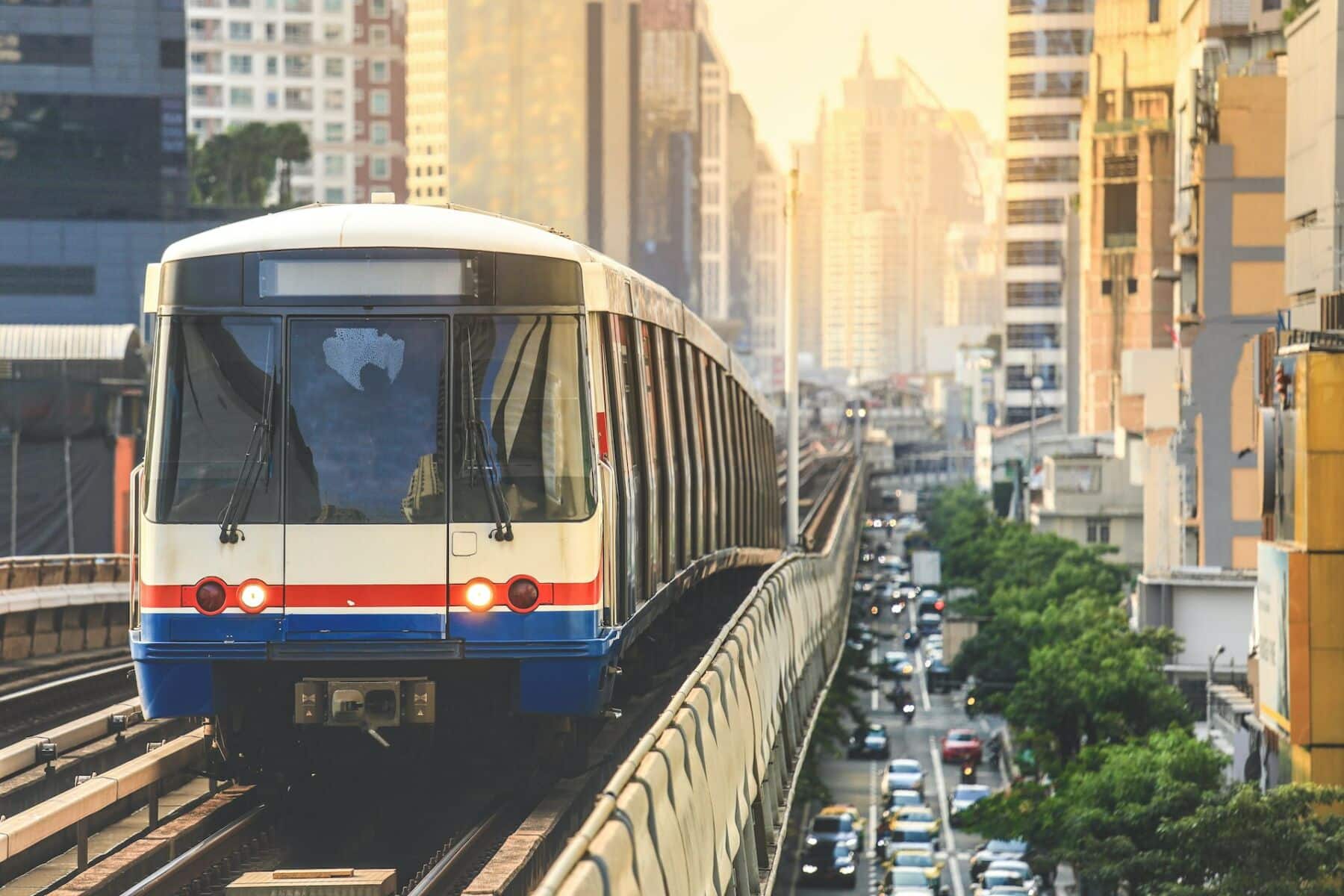Thailand has recently proposed a major shift in its public transport policy by introducing a cap on electric train fares. The new proposal aims to limit fares to just 20 Baht, regardless of the distance traveled. This move is set to impact millions of commuters who rely on the country’s electric train system for their daily transportation needs. In this article, we’ll dive deep into the proposed 20 Baht cap, explore its potential impact on Thai commuters, and what this means for the country’s public transportation future.
What’s Behind the 20 Baht Fare Cap?
The Thai government has long recognized the importance of public transportation in promoting a greener, more efficient, and economically accessible way of moving around the city. The electric train system, a backbone of Bangkok’s infrastructure, serves thousands of passengers daily. With rapid urbanization and the rising cost of living, public transportation needs to be affordable while also being sustainable.
The proposal of a 20 Baht cap is largely seen as a response to the growing demand for affordable commuting options, particularly for the working class. Currently, electric train fares in Bangkok can vary depending on the route and the distance traveled, ranging anywhere from 16 to 52 Baht. The new proposal is expected to simplify this structure and make it more predictable for passengers, offering a uniform fare across all electric train routes.
Why the 20 Baht Fare Cap Matters
Making Public Transport More Affordable
The main advantage of this fare cap is affordability. With the rising cost of daily living, many workers and students have to stretch their budgets thin to pay for transportation. By imposing a 20 Baht cap, the Thai government aims to reduce financial strain on commuters, particularly those who rely on public transport for their daily activities.
This could be a game-changer for many families, especially in low-income areas, as it makes commuting more financially manageable. It also eliminates any concerns about fluctuating fare prices, offering a simple, transparent cost structure that passengers can rely on.
Boosting Public Transport Usage
One of the underlying goals of the 20 Baht fare cap is to encourage more people to use public transportation. With affordable fares, more people might switch from private vehicles to electric trains, which could reduce traffic congestion in Bangkok. This is particularly important in a city known for its traffic jams, where getting stuck in a traffic jam can lead to frustratingly long commutes.
By providing an affordable and reliable alternative to private vehicles, the government hopes to reduce the number of cars on the road, thereby lowering pollution levels and promoting a greener environment. It could also ease the strain on the existing road infrastructure.
Impact on the Environment
Public transport, especially electric trains, is considered a much more eco-friendly option compared to private vehicles. By encouraging more people to use electric trains, Thailand could see a significant reduction in carbon emissions. This aligns with the country’s ongoing efforts to reduce its environmental footprint and promote sustainability.
How Will the Fare Cap Affect the Electric Train Operators?
While the 20 Baht cap will undoubtedly benefit commuters, it may pose challenges for the operators of the electric train services. The fare cap could potentially affect the revenue generated from ticket sales, especially on longer routes where the cost of operating trains can be higher.
However, the Thai government has assured that it will provide subsidies to the operators to compensate for the potential loss in income. These subsidies are expected to help cover the operating costs, allowing the trains to continue running efficiently without raising fares. The government’s role in ensuring that operators remain financially viable is critical to the success of this proposal.
What Does This Mean for Commuters?
For commuters, the 20 Baht fare cap is a positive development. It ensures that regardless of where you travel on the electric train network, you will never pay more than 20 Baht. This uniform fare structure eliminates the need for passengers to calculate varying prices based on distance, making the entire process simpler and more predictable.
It’s important to note that the fare cap does not mean that the train system will become free. However, for many passengers, the 20 Baht fee will be a welcome relief, particularly for those who regularly use the service. With more affordable fares, commuters might even find themselves using the train more frequently, reducing their reliance on other, more costly forms of transport.
A Step Towards a More Sustainable Future
The introduction of a fare cap is just one piece of the puzzle in the larger picture of transforming Thailand’s public transportation system. In recent years, there has been a push for greener and more efficient transport systems, including electric buses and modernized train services. The 20 Baht cap aligns with this vision, making public transportation more accessible and encouraging more people to opt for environmentally friendly options.
A Table Overview of the Fare Changes
| Current Fare | Proposed Fare Cap | Difference |
|---|---|---|
| 16 Baht to 52 Baht (depending on the route) | 20 Baht for all routes | – Significant reduction in fare for longer routes |
Conclusion
Thailand’s proposal to introduce a 20 Baht fare cap for all electric train services marks a bold step towards making public transportation more affordable and accessible. This move promises to ease the financial burden on commuters, reduce congestion, and promote environmental sustainability. While the long-term effects on train operators and revenue are still being assessed, the potential benefits for the average commuter are undeniable. With this new policy, Thailand is taking significant strides towards creating a more sustainable and equitable public transportation system.
